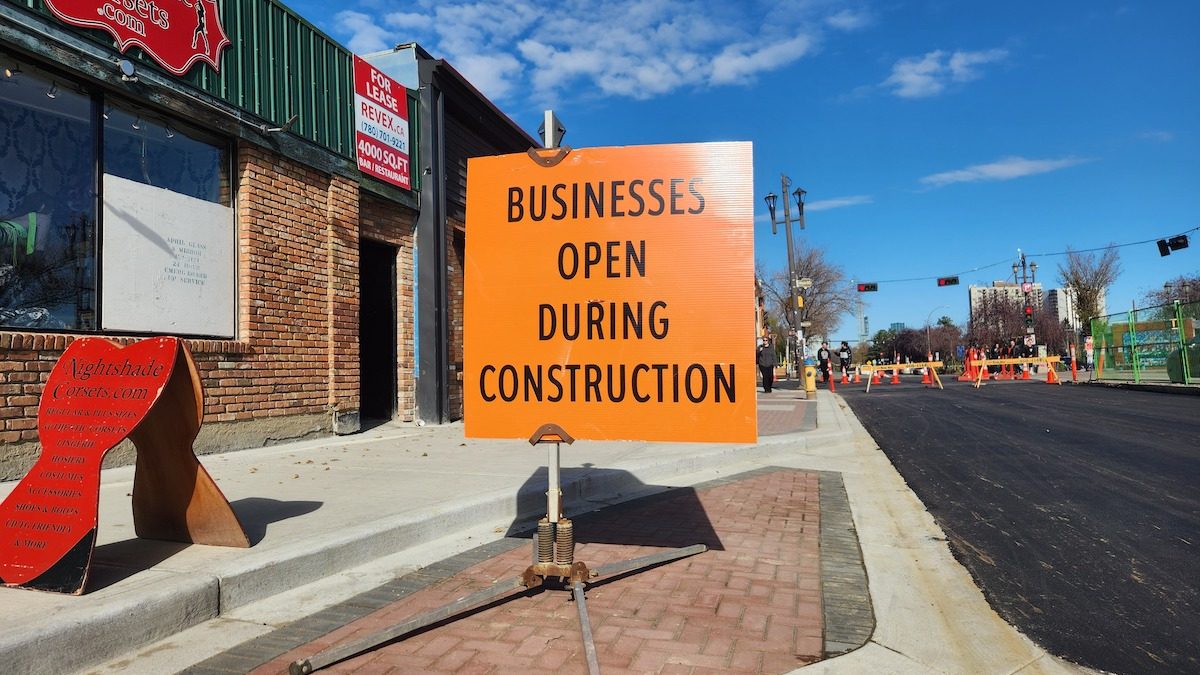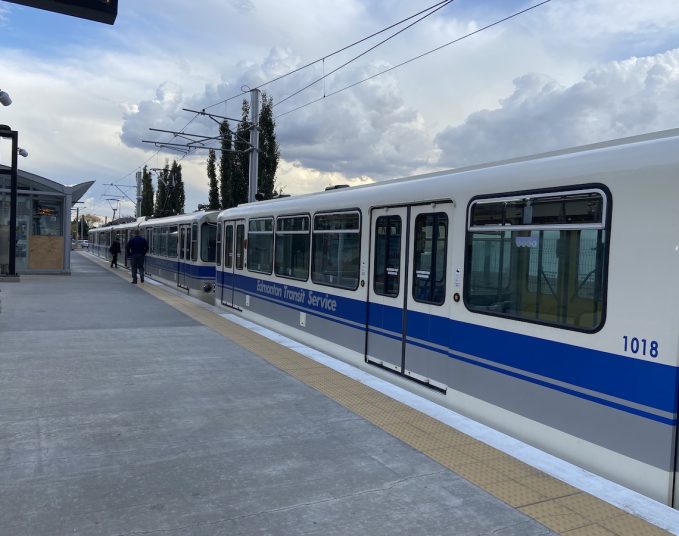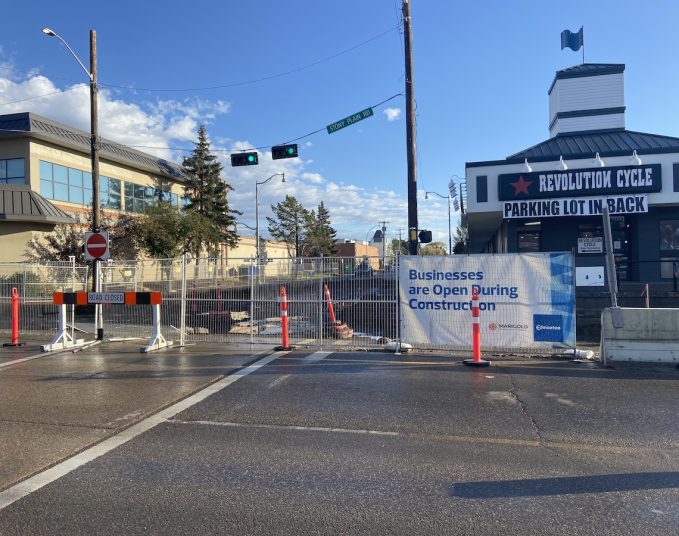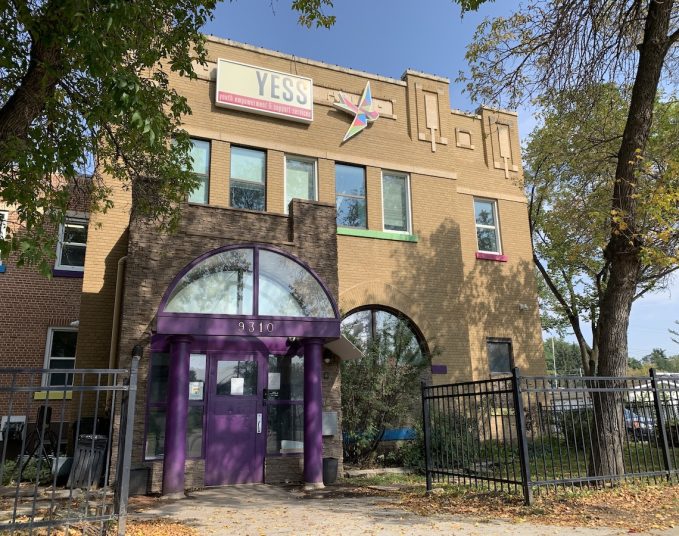Coun. Andrew Knack fought for what he believed in, but he was pretty sure he was going to be defeated.
In the council chamber this week, he tallied up the potential votes in his head, and said out loud that it looked to be a 6-6 tie. That would not be enough to support his motion, which called for the City to provide tax breaks to businesses that prove major financial losses due to major construction projects, like the LRT.
But, just before the vote was taken, Coun. Karen Principe returned to the meeting, swinging the vote 7-6 in favour of Knack’s motion.
Talk about calling in the cavalry.
This doesn’t mean the plan is approved; it means the City will now take the next needed steps. There will be public engagement, and a lot more debate.
While Mayor Amarjeet Sohi and councillors Ashley Salvador, Michael Janz, Jo-Anne Wright, Keren Tang and Erin Rutherford opposed Knack’s motion, it’s not really about one side of council being pro-business and the other side being anti-business. The vote came after a nuanced debate, with lots of pros, cons and butterfly effects being discussed. The best way to cover this is to break down some of the big talking points.
What Was On The Floor
Some history: In 2022, Knack made a similar motion, and it was defeated 7-6. As the councillor for Ward Nakota Isga, he’s heard from businesses along Stony Plain Road that have construction fences surrounding them as the western extension of the LRT is being constructed. They tell him they are suffering.
His logic is simple: At some point, these businesses will realize the benefits that come with being adjacent to a massive transit corridor. But, in order to reap those benefits, they need to survive years worth of construction.
So, after speaking to councillors over the past year, he came back with a refined motion that called for businesses to have to prove their losses, and then aid will come in the form of property-tax breaks. Those breaks are capped at 50 per cent per year. The benefits have to go to the small business owners, not the landlords. And, when construction is complete, if business picks up, the money needs to be repaid.
Basically, as Knack sees it, it’s the City and the businesses betting on themselves. If council believes so strongly that major infrastructure projects are going to benefit neighbourhoods in the long run, then it should be confident that the short-term property-tax cuts will be repaid over the long term.
Does The City Have the Money To Do It?
Mayor Amarjeet Sohi supported Knack in 2022, and, like Salvador, moved from a “yes” to a “no” position this time around.
Both Salvador and Sohi talked about the pressures this package could place on the budget. And Sohi said that the City’s financial situation is far more precarious in 2023 than it was in 2022. A lot of tough budget decisions are upcoming, and Edmonton is already wrestling with a $73.8 million budget deficit.
“Our financial situation has considerably changed,” said the mayor.
What About Equity?
When the LRT extension was being built in Mill Woods, Ward Karhiio Coun. Keren Tang heard many complaints from businesses. She said 28th Avenue was gutted. And she wonders if those business owners will wonder “why now?” when it comes to compensation. If the motion is triggered by complaints from businesses in the west end, the question will come — are some neighbourhoods more equal than others?
“I worry about the message it sends to businesses who went through this previously. What about us? Have we been forgotten?” said Tang, who said compensation would best be handled in the form of other grants.
Sohi said he was under the impression in 2022, when he supported Knack, that aid would be retroactively given to businesses that have already suffered through long-term construction projects. Without it, he said the program would be inequitable.
Knack said he supports the idea of retroactive aid, but in previous discussions, got the feeling that there wasn’t an appetite for it amongst his fellow councillors.
“As much as I do think we owe it to them, I don’t think it’s something I’ve heard support for.”
Where Does It Stop?
Coun. Erin Rutherford has heard complaints from both home and business owners in her ward, which is affected by the construction work on the Yellowhead. She said residents near the 127th Street/Yellowhead intersection are so bothered by dust and noise, they’ve even asked for property-tax breaks.
But, that’s the question. If businesses get compensation, does it open a Pandora’s Box? Will residents claim injury, as well?
(At this point, for transparency’s sake, I have to notify the readers that my family’s home is directly impacted by LRT construction.)
“They make some really valid arguments, like, if I want to sell, I am stuck with this house,” said Rutherford.
She also questioned which projects are big enough to qualify, and which ones are too small. She said there’s a liquor store owner who called her, despondent about the effects a smaller construction project was having on the business. Who determines who can qualify, and who doesn’t? Rutherford said the City might create “have and have nots.”
The Social Contract
Janz was against Knack’s motion in 2022, and he was steadfast in his opposition in 2023. He said it’s asking too much of the City to compensate business owners, when these construction projects are done in partnership with the province and feds.
Knack argued that, while the province and feds contribute to big projects like the LRT, the projects are driven by the wishes of the City. So, the City needs to take that moral responsibility.
But Janz wondered if there is a moral responsibility at all. When people choose to live in a city over the suburbs or a rural area, do they not agree to a social contract — that they will need to deal with the noise and bustle that comes with urban life?
“Part of living in a growing city where we have to take care of things, where we have to take care of each other.”
Who Watches the Watchmen?
City administrators warned councillors not to support Knack’s motion. It’s not just about where the money would come from for compensation, it’s also about what work would be needed to administer the program.
Montreal is the only other Canadian city that has a similar program. And, it’s never spent nearly as much as has been budgeted to compensate businesses for the impacts of construction. During the debate, the numbers were pegged at less than $10 million a year.
Knack repeatedly said the reason he made his motion so tight, with so many rules, is to avoid a domino effect, where more and more businesses would ask for money. But, with tight rules comes the need to make sure everyone is playing by them. Administrators warned that City staff would need to go over the applications from businesses and vet their books. And, in order to be vetted, businesses would need to be transparent with their accounting. Would there be an appetite to open up the books for the City to scrutinize?
“I see it as an administrative nightmare,” Wright said.
Should There be a Pilot?
Coun. Tim Cartmell opposed Knack’s plan in 2022, but gave it a vote of support this time around. He floated the idea that, before implementing it City-wide, a pilot project is needed. Do it for Stony Plain Road businesses first, gauge the uptake and see what the costs are associated with the program. As this would be designated as a pilot project, the equity argument might be eliminated.
“If we try it in one area that is pretty easily defined, and we test the premise, then we can talk about expanding…, We can talk about what worked and what didn’t.”
Knack said he was open to the idea, and there was talk about him withdrawing the motion and bringing it back to the committee level for refinement. But, doing that would need the unanimous support of council, and that didn’t happen.
“The Debate is Never Going Away”
Those were the words of Coun. Sarah Hamilton. And she’s right. Whether or not the City supports Knack’s measures down the road and this does eventually become law, councillors will always hear about the effects of construction on residents and businesses.
Most of them recounted stories about the impacts of projects in their wards. Coun. Aaron Paquette even went as far as to say the Fort Road area has been devastated by ongoing construction projects which have closed streets and detoured traffic away from an area that badly needs economic revitalization.
He told councillors to go to Fort Road “if you want to see how to sterilize an area because of construction.” He said abandoned buildings have burned down, historic resources have been lost and the businesses that remain there, like the Transit Hotel, are just hanging on.
Hamilton and Paquette supported Knack’s measure, and talked about how it’s important to have this debate. As it goes further, there will be public engagement, and the City will get a better sense of what Edmontonians want.
And, thanks to Karen Principe’s in-the-nick-of-time arrival, the Knack motion lives on. Ironically, had council not had such a long debate on this, Principe might not have got back in time to vote — and it would have been defeated. But, in the end, democracy is stronger when 100 per cent of council is present, so this is more an observation than a criticism.
Savvy AF. Blunt AF. Edmonton AF.




